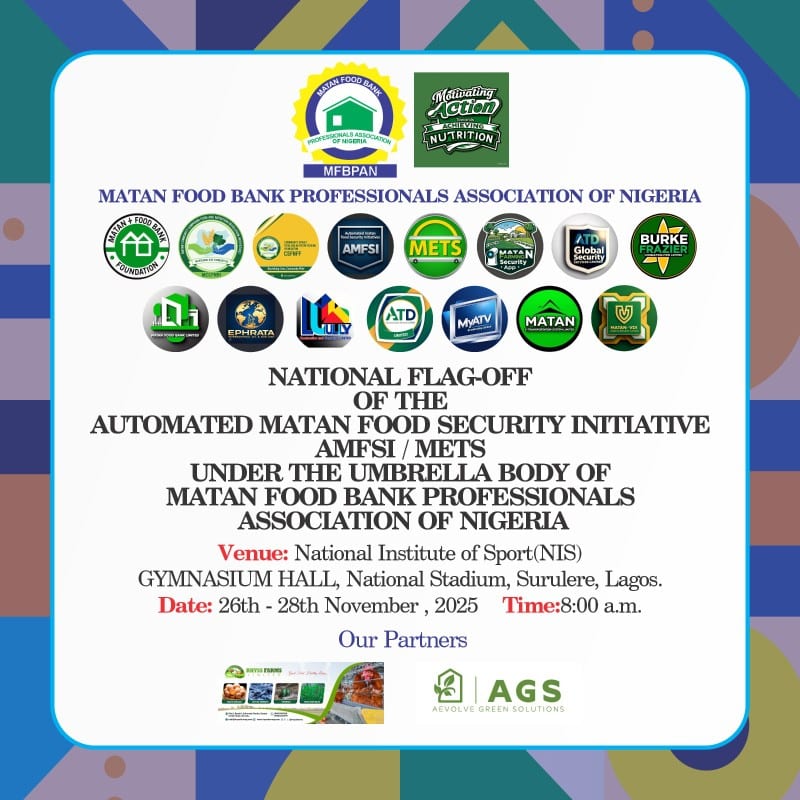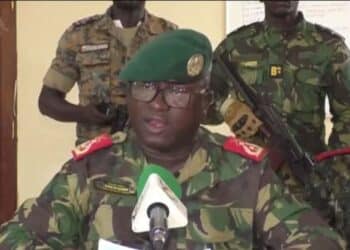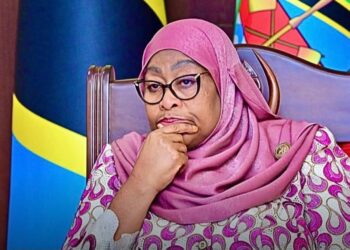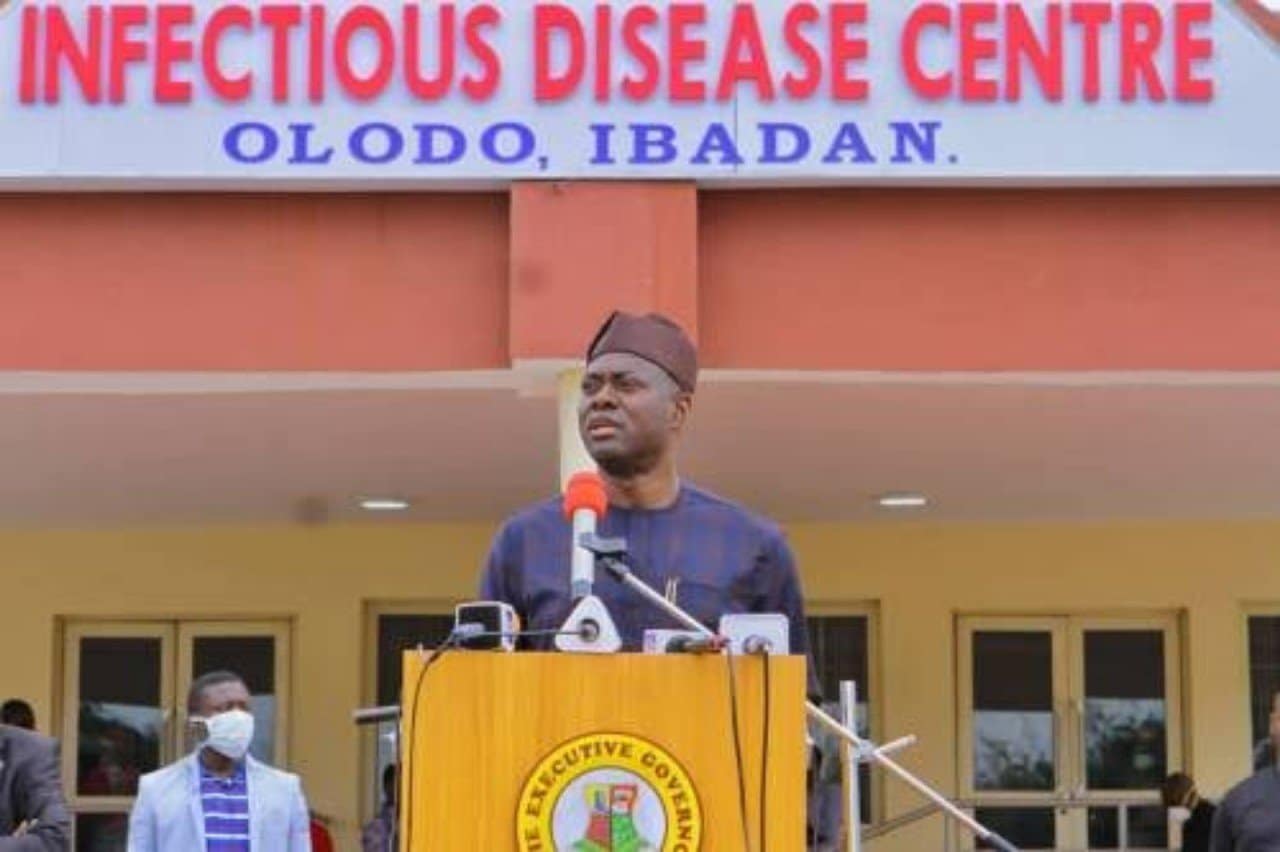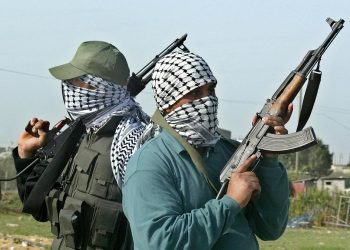Sam Nujoma, the founding president of an independent Namibia, who led a Soviet-backed guerrilla army in an uneven fight against the vastly superior forces of white-ruled South Africa in a victory that owed much to the dynamics of the Cold War, died on Saturday in Windhoek, Namibia’s capital. He was 95.
Nangolo Mbumba, the country’s current president, announced the death. He did not give a cause but said that the former president had been hospitalized for three weeks.
Praising Mr. Nujoma as one who had “heroically marshaled the Namibian people during the darkest hours of our liberation struggle,” he said a period of national mourning would be announced.
A bearded, bespectacled man given to trading his camouflage fatigues for business suits, depending on his audience, Mr. Nujoma pursued twin tracks of diplomacy and insurgency in a decades-long quest for the liberation of his country — a sprawling but sparsely populated former German colony that Pretoria ruled in defiance of the United Nations.
When independence finally came in March 1990, though, it was the product of a United States-brokered deal to secure South Africa’s withdrawal in return for a pullout by 50,000 Cuban soldiers from neighboring Angola, which had provided a crucial rear base for Mr. Nujoma’s guerrillas.
Mr. Nujoma and his South-West Africa People’s Organization, known as SWAPO, which was formed in 1960 after he fled Namibia in exile, played no direct part in the negotiations that led to the agreement. And though Mr. Nujoma adopted a nom de guerre — Shafiishuna, or Lightning — there was no record of his direct participation in combat.
For years, South Africa’s white rulers had maintained that Namibia, which they called South-West Africa, was the final buffer against the southward advance of Communist influence in Africa. So when the Soviet Union collapsed, the oft-repeated claim to be a pro-Western bulwark against Moscow’s encroachment lost its relevance.
As independence approached, Mr. Nujoma’s party abandoned what some had depicted as a drive for a Marxist one-party state, and agreed to multiparty elections and a democratic Constitution that seemed to reinforce his longstanding insistence that he was a nationalist, not an ideologue.
Nonetheless, many analysts detected an autocratic streak. Re-elected to a second term in 1994, he oversaw a constitutional change that allowed him to successfully run for a third term in 1999, ignoring an earlier commitment to term limits.
During the war itself, his SWAPO acquired a reputation for harsh treatment of dissent. In 1976, the organization’s head of information, Andreas Shipanga, was arrested and accused of siding with young Namibians who regarded the Nujoma leadership as uninspired and hidebound. The crisis led to vicious purges of the party’s ranks, with hundreds of young would-be freedom fighters detained in camps in Angola and Zambia and reportedly beaten, tortured and even killed, facing often unfounded charges of spying for South Africa.
The abuses were not limited to the insurgents. A South African-sponsored police unit called Koevoet — Afrikaans for crowbar — hunted down SWAPO guerrillas, displaying the bodies on the mudguards of their armored trucks like hunting trophies.
No single event encapsulated the opposing perceptions of Namibia’s war as much as a bloody South African airborne incursion at Cassinga, 160 miles north of the Namibian border in Angola, on May 4, 1978. The episode, which left around 600 dead, is now commemorated as a national holiday, Cassinga Day.
South Africa said that its forces struck a military command, control and training center for insurgents, and successfully engaged Cuban forces stationed nearby. SWAPO said the South Africans attacked a refugee transit camp, supporting its assertion with grisly photographs of a mass grave. By most accounts, Mr. Nujoma won the battle of perceptions, gaining him broad international sympathy.
As early as the 1970s, SWAPO had won the recognition of the United Nations as the “sole and authentic representative” of Namibia’s people, buttressing its claim to legitimacy. Crisscrossing the globe as a spokesman for his cause, Mr. Nujoma secured backing from such disparate sources as the Soviet Union, which supplied weapons and training, and Nordic countries, in particular Sweden, which provided humanitarian assistance.
While Mr. Nujoma argued that his party brought about the political fall of successive South African leaders, the final battle for independence was fought primarily by Cuba and South Africa in increasingly ferocious clashes in 1988 around the Angolan town of Cuito Cuanavale. At the same time, Cuba’s Fidel Castro committed huge reinforcements elsewhere in southern Angola that raised the stakes significantly.
American-brokered negotiations toward a settlement signed in New York in December 1988 provided for Cuban troops to leave Angola in return for a South African withdrawal and a United Nations-led transition to elections and independence in Namibia.
In September 1989, Mr. Nujoma returned to the country he had exiled himself from almost 30 years earlier. After his plane landed, he “knelt and kissed the soil of my beloved country,” he wrote in “Where Others Wavered,” a 2001 memoir.
Samuel Daniel Nujoma ya Nujoma was born on May 12, 1929, the first of 11 children, in the Ongandjera district of Ovamboland, named for the Ovambo ethnic group in the north of Namibia, to which he belonged and which accounts for over 50 percent of the country’s population.
His father, Daniel Utoni Nujoma, and his mother, Mpingana-Helvi Kondombolo, worked the land. As a boy, Mr. Nujoma said in his memoir, he tended the family cattle and goats, carrying a baby on his back to free his mother to work in the fields.
With only modest formal education, Mr. Nujoma moved at age 17 to the coastal enclave of Walvis Bay, where he worked at a general store and a whaling station before relocating to Windhoek as a cleaner on the railroad system. After hours, he studied English at night school. In 1956, he married Theopoldine Kovambo Katjimne. They had three sons — Utoni, John and Sakaria — and a daughter who died at 18 months. Mr. Nujoma was in exile by then and unable to attend her funeral, he wrote, because the police would have arrested him.
His survivors include his wife, his sons and many grandchildren.
In the late 1950s, as Ghana’s independence from Britain in 1957 became an emblem of liberation for many Africans, Mr. Nujoma was associated with organizations that were forerunners of SWAPO, notably the Ovamboland People’s Organization. He left for exile in 1960 over his role in protests against the forced removal of Black people from one segregated township to another. In 1966, his organization launched the first tentative military operations of its armed struggle. Over the years, thousands of young Namibians joined the insurgents’ ranks.
South Africa sought to belittle its war with SWAPO as a low-intensity conflict, but that belied its increasing commitment of military forces. “Despite major efforts by South Africa over 20 years,” Bernard E. Trainor, a military correspondent for The New York Times, wrote in July, 1988, “the Namibian rebels’ strength, now estimated at 8,000, appears undiminished.”
SWAPO’s military traditions endured after independence when Namibia’s regular army was deployed in support of the Congolese president, Laurent Kabila, in 1998 and to put down a secessionist revolt in the northeastern Caprivi Strip in 1999.
By the time Mr. Nujoma returned to Namibia in 1989, he commanded substantial political support, in part because of the numerical strength of his Ovambo followers, and in part because of his stewardship of the liberation war.
Despite a vigorous South African campaign to promote his adversaries, Mr. Nujoma secured 57.3 percent of the vote for a constituent assembly — shy of the two-thirds majority needed to dictate the terms of a new Constitution. His share of the vote rose to 76.3 percent in 1994 and to 76.8 percent in 1999. His chosen successor, Hifikepunye Pohamba, took over as president in 2005 after elections in late 2004. Mr. Nujoma retired formally as president of SWAPO in 2007.
Like Robert Mugabe at independence in Zimbabwe a decade earlier, Mr. Nujoma had sought to reassure a nervous white majority and its South African backers.
“It does not pay for any of us now to dwell on sad historical events,” he told a news conference after returning to Namibia. “We must leave them behind us and start working afresh together for a bright future for this country.”



